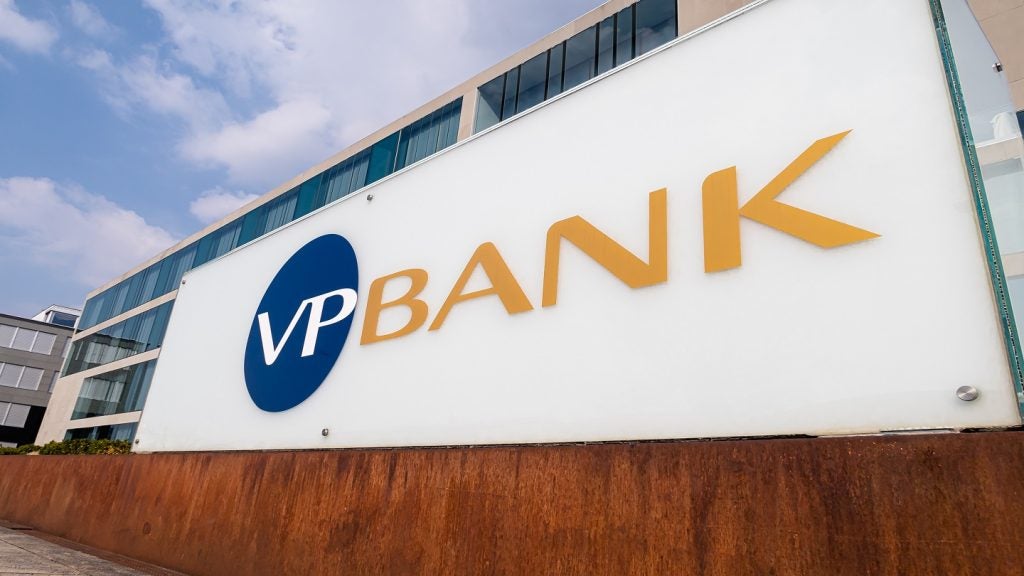Having established itself as the
leading domestic private bank in China, Bank of China is pursuing
an increasingly international focus. Will Cain talks to the head of the
bank’s Switzerland-based private bank, Jacques Méchélany, a year
after it became the first Chinese banking major in the
country.
As power both political and financial
flows ever increasingly East, it seems only a matter of time before
an Asian financial institution makes its name among the globe’s
private banking elite. More than half of the delegates at the
Private Banker International Wealth Summit, our annual conference
and awards in held in October, said they expected this to happen
within the
next five years.
Bank of China (BoC), among the leading private
banking players in its domestic market, is one of the candidates to
assume that position. BoC has benefited from joint ventures with
UBS and Coutts to build out its private banking capability and in
December 2008 made the first step of any aspiring private banking
major – setting up an office in Switzerland, adding to
international operations in Hong Kong, Macau and Singapore.
In its first year of operation, the Swiss Bank
has attracted roughly CHF600 million ($591 million) in private
banking business and the institutional business has fluctuated
between 0 and CHF2 billion over the year.
The bank has gone past the 300 mark in client
account numbers, according to J acques Méchélany, the CEO of the business in Switzerland,
acques Méchélany, the CEO of the business in Switzerland,
in an interview with PBI. It also has close to CHF200 million under
management in its asset management subsidiary, which was formerly
Heritage Fund Management.
The unit was rebranded Bank of China (Suisse)
Fund Management (BoCFM) after the bank bought an 80 percent stake.
Méchélany continues to own 20 percent of BoCFM and is chairman of
the board. BoC Also has joint ventures with US investment manager
Blackrock and Prudential, the British insurer, in China and Hong
Kong. While BoC (Suisse) has grown steadily in its first year, it
remains small compared with its Swiss counterparts and is dwarfed
by its parent’s domestic private banking business.
Méchélany said both private banking and
institutional businesses required long time horizons to be scaled
up, but that he was encouraged by the start.
“The main achievement is to have the Bank of
China brand on the market in Switzerland, which did not exist
before,” said Méchélany.
“We are competing with the largest banks, the
likes of UBS, JPMorgan and HSBC, and attracting clients. Beyond the
solidity of the balance sheet, we have put together services that
you find in other large banks, but we also have a very strong edge
on the Chinese financial markets. We offer portfolios in renminbi
and we have proven expertise in managing Chinese equity
portfolios.
“Soon, we will also be the first bank in
Switzerland to offer cash accounts in renminbi as well as deposits
and foreign exchange operations.”
BoCFM launched 24 funds in September 2009, 10
of them denominated in renminbi, the first Swiss funds to be
denominated in the currency. It complements a range of tracker and
benchmark funds its parent group offers in China.
A strategy for the future
It is part of a two-pronged strategy
for Méchélany’s business – on the one hand to provide access to
international markets for Chinese clients and on the other to bring
the Chinese financial markets to international clients.
The rules on overseas investments for Chinese
citizens are restrictive – any bank offering international markets
access to Chinese clients has to have Qualified Domestic
Institutional Investor status, which, as a domestic bank, BoC
has.
Restrictions mean listed funds are allowed
only 50 percent of their underlying investments to be held in
stocks, with the net value of an individual stock capped at 5
percent.
The BoC (Suisse) renminbi-denominated funds
are compliant with Swiss regulations. They are focused on what the
bank terms “total return” investment management, an absolute return
strategy which focuses on capital preservation, performance
generation and liquidity, relying on dynamic asset allocations
between investments and cash.
The other part of the strategy is to give
foreign investors access to the Chinese market.
Even though there has been a large shift in
allocations recently in favour of Chinese markets, there are
relatively few truly Chinese providers of asset management
services.
Most investment houses in the country are US-,
UK- or Hong Kong-based. This gives it an important advantage,
particularly in the area of research which, on setting up the
business last year, Méchélany said would be one of BoC (Suisse)’s
key strengths.
“One has to bear in mind that BoC is one of
the largest asset managers in China itself,” said Méchélany.
“But what is interesting is that if you are
dealing with institutional clients allocating portfolios to Chinese
equities, BoC is probably one of the few truly Chinese options.
“It is also the only one in the Chinese market
which, one, has an extremely good reading of government policies
because it is itself an instrument of the governing policies in
China, and, two, from a bottom-up standpoint we have the ability to
analyse companies in the context of what we do in terms of
corporate banking with their competitors, with the companies
themselves and the sectors.
“So from the point of view of the embedded
advantages of BoC in managing Chinese equities, we definitely have
something to offer.
“This is something that is starting to appear
and, logically, if you are thinking about allocating capital to
China then BoC becomes a natural play.”
A wide range of services
As well as offering clients access
to the products of BoCFM, the private bank operates a ‘guided
architecture’ approach to funds offered by third party
providers.
It offers a selected range of traditional and
alternative external investment funds and tailors multi-manager
investment portfolios to meet an investor’s specific needs and
objectives.
BoC (Suisse) also has a family office service
providing wealth structuring, wealth management and special client
services.
It was reported last year that the bank plans
to launch a fund of hedge funds business in 2010, though Méchélany
said this was not true.
“We do not plan to launch a fund of hedge
funds, we have been working on one for a client at his request,” he
added.
The plan for the bank’s second year is to keep
“working, developing, growing,” he said.
“The first priority was to set up something
offering credible solutions and I think we are there. Little by
little the interaction with the rest of the group is building up
and the cross-referrals will certainly develop in the coming
years.
“You have to realise when you set up these
operations that they are brand new, we are operating in a
competitive market in a difficult environment,” he said.
“Normally when you set up a bank and
institutional asset management, the time horizon is long and
critical mass is important. We are privileged to have an extremely
positive brand.
“We have attracted good people and the first
year has been about putting things in place. It’s now about
integrating it more into the Bank of China group, and that’s really
the challenge. We have promising Chinese financial markets even if
globally the crisis might not be over.
“We are at least geared towards the one market
in the world which is growing very quickly.”
Méchélany said there were no immediate plans
to open offices elsewhere, though expansion would make sense when
the Swiss operation had bedded down.
Rothschild deal blocked
Plans in April last year to
establish an agreement with Rothschild were blocked by the People’s
Bank of the Republic of China, the country’s central bank, which
would have seen BoC acquire a 20 percent stake in Compagnie
Financière Edmond de Rothschild.
The deal involved BoC building its stake in
the bank and involved a collaboration with Rothschild providing
fund management services to the bank.
While Rothschild announced in November the two
organisations had decided to push ahead with collaboration element
of the deal, the most important part of the deal was considered to
be the stake-building element.
In China, the bank recently opened its first private banking
service in Fuzhou, in the Fujian province in the south-east of the
country. It is the ninth private banking office BOC has in the
country.







